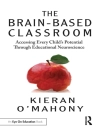Although violent conflict has declined in northern Uganda, tensions and mistrust concerning land have increased. Residents try to deal with acquisitions by investors and exclusions from forests and wildlife reserves. Land wrangles among neighbours and relatives are widespread. The growing commodification of land challenges ideals of entrustment for future generations. Using extended case studies, collaborating researchers analyze the principles and practices that shape access to land. Contributors examine the multiplicity of land claims, the nature of transactions and the management of conflicts. They show how access to land is governed through intimate relations of gender, generation and belonging.
Innehållsförteckning
List of Illustrations
Foreword
Sara Berry
Introduction: Trust and Transitions in Northern Uganda
Lotte Meinert and Susan Reynolds Whyte
Part I: Claims to Land
Case I: The Case of a Disputed Land Sale
Mette Lind Kusk
Chapter 1. Multiplicity
Stephen Langole, Susan Reynolds Whyte and Michael Whyte
Chapter 2. Transactions
Lotte Meinert and Mette Lind Kusk
Chapter 3. Conflicts
Irene Winnie Anying and Quentin Gausset
Part II: Intimate Governance of Land
Case II: Disrupted Land and Broken Graves
Sophie Seebach
Chapter 4. Generations
Esther Acio, Lioba Lenhart and Susan Reynolds Whyte
Chapter 5. Gender
Julaina A. Obika and Hanne O. Mogensen
Chapter 6. Belonging
Ben Otto Adol, Michael Whyte and Susan Reynolds Whyte
Part III: Imagining Development
Case III: Claiming ‘Their’ School: Land Dispute Between Two Churches over a Primary School
Catrine Shroff
Chapter 7. Aspirations
Susan Reynolds Whyte and Catrine Shroff
Chapter 8. Inside-Outsiders
Marianne Mosebo and Lotte Meinert
Chapter 9. Conservation
Lioba Lenhart and Lotte Meinert
Afterword: Who Belongs Where, and What Belongs to Whom?
Christian Lund
Appendix: Land Legislation and Implementation in Uganda
Anne Mette Kjær
Index
Om författaren
Susan Reynolds Whyte is Professor at the Department of Anthropology, University of Copenhagen, and has researched in East Africa on social efforts to secure well-being in the face of poverty, disease, conflict, and rapid change. Her publications deal with the management of misfortune, legacies of violence, and transformations in relations of gender and generations.












